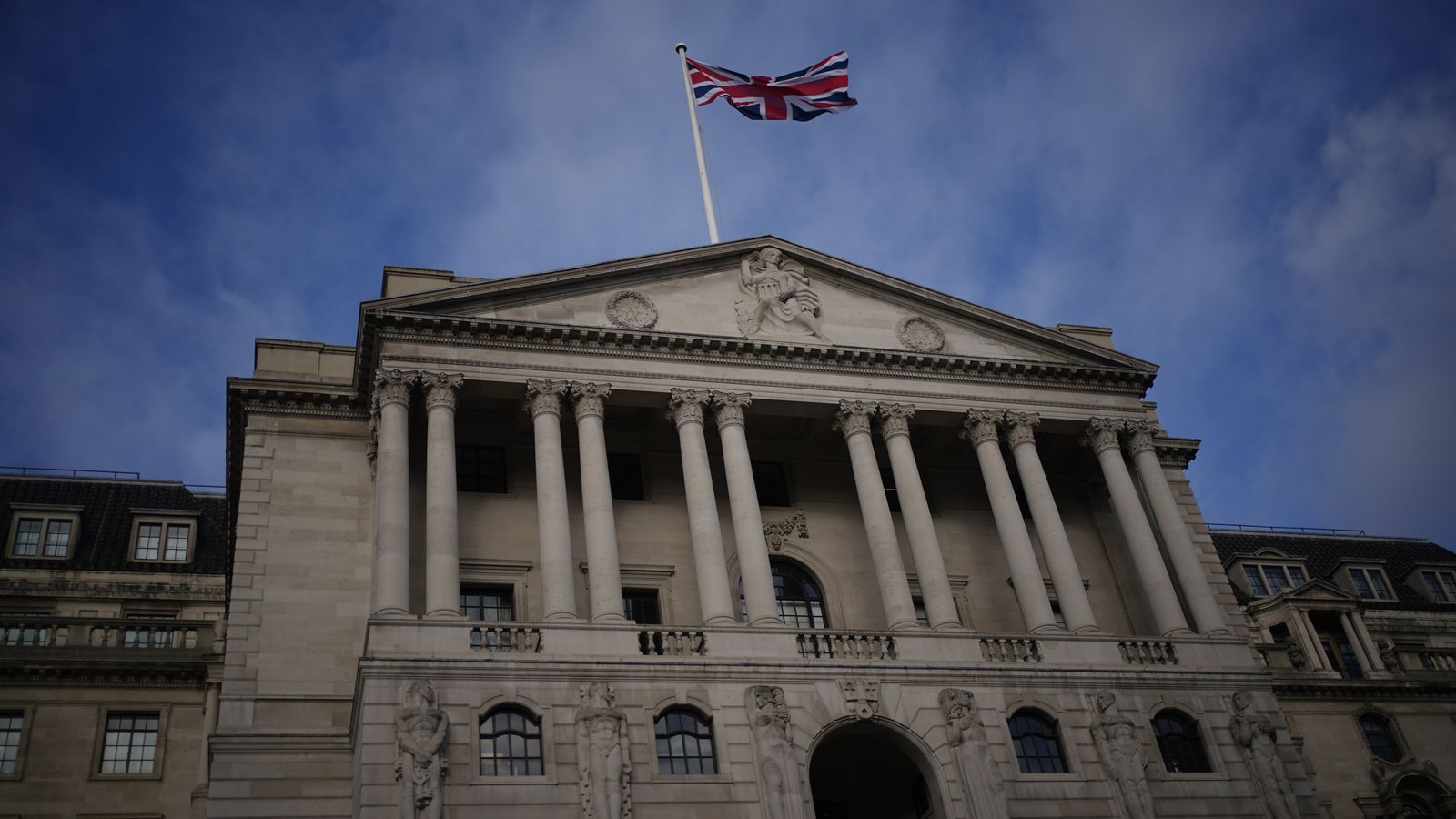Bank of England set to raise interest rate for 11th time in 18 months

The Bank of England is expected to raise the interest rate for the 11th time in less than 18 months after Wednesday’s surprise jump in inflation.
It is due to announce its latest decision at noon as it tries to reconcile the UK’s weak economic outlook and an international banking crisis.
Financial markets widely expect a 0.25 percentage point hike to 4.25%.
Any increase in Bank rate would be part of a series of measures to reduce inflation, but would inevitably increase pressure on many people, particularly mortgage holders, already being squeezed by the cost-of-living crisis.
Many economists believed the Bank of England would pause its run of interest rate hikes as inflation appeared on course to ease steadily.
But data released yesterday showed inflation rising to 10.4% from 10.1% in February.
Inflation hit a 41-year high at 11.1% in October.
The US Federal Reserve raised its main rate by a quarter of a percentage point on Wednesday but indicated it would stop further increases.
Please use Chrome browser for a more accessible video player
3:36
A five-point guide to the banking panic of 2023
The European Central Bank also raised its three main interest rates by 50 basis points last week despite financial market turmoil engulfing Credit Suisse and the collapse of Silicon Valley Bank.
Advertisement
While some of the inflation rise can be blamed on potentially one-off factors such as vegetable shortages caused by cold weather in Spain and North Africa, the underlying inflation measures that the Bank of England tracks also increased.
The Bank of England was the first major central bank to start raising interest rates in December 2021.
Bank of England governor Andrew Bailey stopped using language saying the central bank was ready to act forcefully if the outlook suggested persistent inflationary pressures.
Click to subscribe to The Ian King Business Podcast
ING economist James Smith said he expected any rate hike on Thursday was likely to prove the last in the Bank of England’s run.
“Assuming the broader inflation data continues to point to an easing in pipeline pressures, then we suspect the committee will be comfortable with pausing by the time of the next meeting in May,” Mr Smith said.